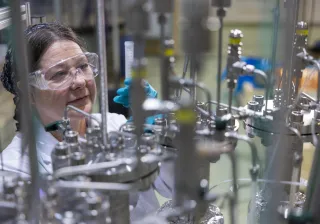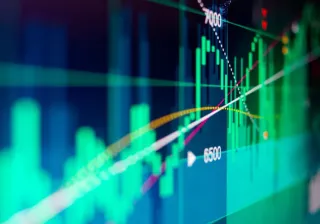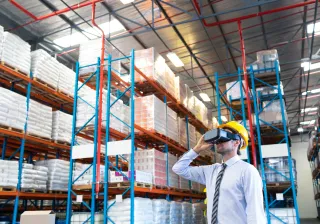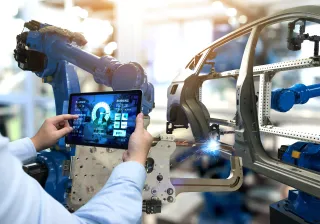More efficient solutions are needed for water resource management. Clean water is the prerequisite of life but drinking water provision can be costly especially in dry countries. In addition, a significant share of the water supply is wasted in network leaks. VTT is coordinating a project that will develop a digital platform for smart water management. The solution will be presented at the Finnish Water Forum webinar at the Dubai 2021 World Expo on 21 June.
Both water utilities and water-intensive industries need new solutions for improving the efficiency of water management. Some of the water networks leak constantly: in Finland, about 18% of the drinking water leaks out in the environment and in countries with old infrastructure this figure can be as high as 50%. The digitalisation of distribution networks will make it easier to locate and predict leaks and maintain the network. A digitally monitored and operated network can also provide real-time data on water quality.
Promising technologies for digital water management already exist, but their introduction is slowed down by challenges related to, for example, integration of technologies and concerns about cyber security. The new Smart Water Management (SWIM) project addresses these challenges by means such as co-creation and standardisation.
“There is a global shortage of clean water and climate change is expected to exacerbate the situation. Reducing water leaks in the distribution network means that less clean water needs to be produced, which saves water resources, energy and chemicals,” says Topi Helle, CEO of the Finnish Water Forum.
New platform for digital water management – focus on intelligence and information security
The SWIM project will develop a digital platform for more efficient water management.
“In the development of the digital platform, the focus is on smart water management, where Finland is one of the world's leading countries. The digital platform will use high-quality data collected from the water network using sensors. Another aim is to promote the use of artificial intelligence in water management,” says Mona Arnold, Principal Scientist at VTT.
The solution will be based on the open development platform of the project partner Nokia and the smart solutions provided by Finnish IT companies. VTT is tasked with developing capabilities needed in the project. The solutions will be tested and demonstrated in the research partner Savonia's test water network in Kuopio. Savonia WaterLab includes a complete scale model of a real water network. The WaterLab can e.g. be used to test basically any network fault situation, which can be mechanical, chemical, microbiological or digital.
“Testing systems in real-world environments provides an immediate response to the functionality of the methods to support research and product development,” says Patryk Wójtowicz, Research Manager at Savonia.
“The world needs flexible and resilient water systems with operations that can anticipate, monitor and adapt to changing circumstances. New LPWA NB-IoT communications and open standards-based digital platforms are rapidly transforming water utilities by empowering their digital transformation”, says Stephen Major, Global Energy Practice CTO at Nokia. “We are delighted to be part of this project to help accelerate water industry innovation and its use of IIoT solutions to enable holistic water management for a faster transition to smarter, more adaptive networks.”
Digital solutions are also vulnerable to cyber threats, so the new platform must be protected against these threats. VTT has robust expertise in cyber security.
In Finland, water quality is among the highest in the world, and there is no shortage of water. During the two-year SWIM project, the aim is to create a demonstrated, competitive overall solution for the international market.
Smart water management has become a megatrend in the world. The global smart water network market is estimated to be about USD 22 billion and to grow by 6–18% annually, depending on the sector.









